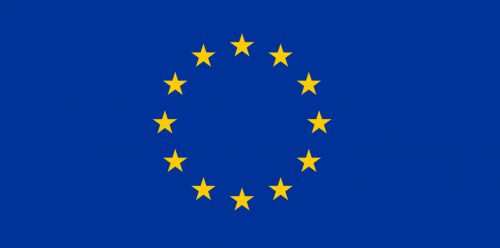European Law 2018: amendments to the Drugs Code in regard to the implementation of the GMP

1. Amendments concerning the manufacturing and import of medicines
The following are the main amendments introduced by European Law 2018 in Title IV of the Drugs Code, which is dedicated to the manufacturing and import of medicines with the purpose of strengthening the implementation of the GMP, with respect also to medicinal products used in drug trials, pending the application of Regulation (EU) No. 536/2014 on clinical trials:
- (i) according to the amended Article 58 of the Drugs Code, GMP shall be applied not only to medicinal products for human use that are manufactured or imported in Italy, following the authorization of the Italian Medicines Agency (“AIFA”), in accordance with Article 50 of the Drugs Code, but also to medicinal products for human use that are used in drug trials, pending the adoption of Regulation (EU) No. 536/2014 on clinical trials. For the purpose of the correct application of the guidelines on GMP, certain specific definitions, such as “manufacturer” and “investigational medicinal products”, have also been introduced in Article 59 of the Drugs Code;
- (ii) with regard to advanced therapy medicinal products, manufacturers should take into account the specific guidelines on GMP that are provided for in Article 5 of Regulation (EC) No 1394/2007;
- (iii) to ensure the pharmaceutical quality system, manufacturers shall meet the same requirements necessary for each manufacturing site for each import site also: for instance, they shall employ competent and qualified personnel and the premises and equipment to be used for any manufacturing and import operations shall be subject to qualification and validation processes;
- (iv) manufacturers shall also implement a quality control system under the responsibility of a highly qualified person, who should be independent of the manufacturing division. External laboratories may be used. With regard to investigational medicinal products, pending the application of Regulation (EU) No. 536/2014, the sponsor of the trial must currently ensure that the external laboratory complies with the requirements described in the relevant application which is filed, in order to gain the authorization for the clinical trial;
- (v) manufacturers are also required to keep a sample from each lot of the finished medicinal product for at least one year following the relevant expiry date, and of raw materials for at least two years following the release of the relevant finished product;
- (vi) any manufacturing or import operations which are outsourced shall be subjected to a written contract and cannot be further sub-contracted without the authorization of the client. In the case of an outsourced operation, the contract must specify that the contractor shall comply with the principles and guidelines of GMP;
- (vii) provisions, relating to investigational medicinal products, that are dedicated to the documentation, manufacturing, complaints and withdrawals of the medicines are removed from the Drugs Code, since these matters are currently regulated by Regulation 2017/1569/EU;
- (viii) manufacturers shall implement a system for recording and reviewing complaints, together with an effective system to promptly recall medicinal products from the distribution network. They shall record and investigate any complaint relating to medical products’ defects and inform the AIFA, and, where appropriate, the marketing authorization holder, of any defects which may give rise to withdrawals from the market or to abnormal restrictions on supplies; and
- (ix) the manufacturer shall conduct repeated self-inspections in order to monitor the implementation, and compliance with GMP, and to propose any necessary corrective measures or preventative actions. Self-inspections shall be recorded, together witj the resultant corrective measures, and such records shall be maintained for at least ten years.
European Law 2018 also addresses the conduct of inspections in regard to the manufacture of medicinal products, active substances and excipients, and specifies that the AIFA shall comply with the Community’s Procedures on Inspections and the Exchange of Information, which are regularly updated by the European Medicines Agency (“EMA”) and published by the European Commission. Moreover, AIFA shall apply an appropriate and regularly updated quality control system for the conduct of such inspections.
2. Amendments concerning the prohibition of the sale and use of medicines, and the storage of unused or expired medicinal products
In addition to these amendments that relate to the manufacturing and import of medicines, European Law 2018 has also intervened in the prohibition on the sale and use of medicines (Article 142 of the Drugs Code) and with regard to unused or expired medicines (Article 157).
In particular, European Law 2018 has introduced further cases in which AIFA may prohibit the sale and use of a medicinal product and order the withdrawal of the product in the event that the obligations and conditions prescribed at the time of the issue of marketing authorization, or at the time of the approval of variations by the AIFA, have not been observed.
Finally, with regard to unused or expired medicines, it has been established that the marketing authorization holder provides for the storage of medicines in special warehouses. It shall proceed to the destruction of the pharmaceutical products after receiving authorization from the AIFA, and this destruction will be undertaken under the supervision of the Italian enforcement authorities (the Carabinieri). This procedure also applies to seized medicines, unless otherwise specified by the judicial authority.
